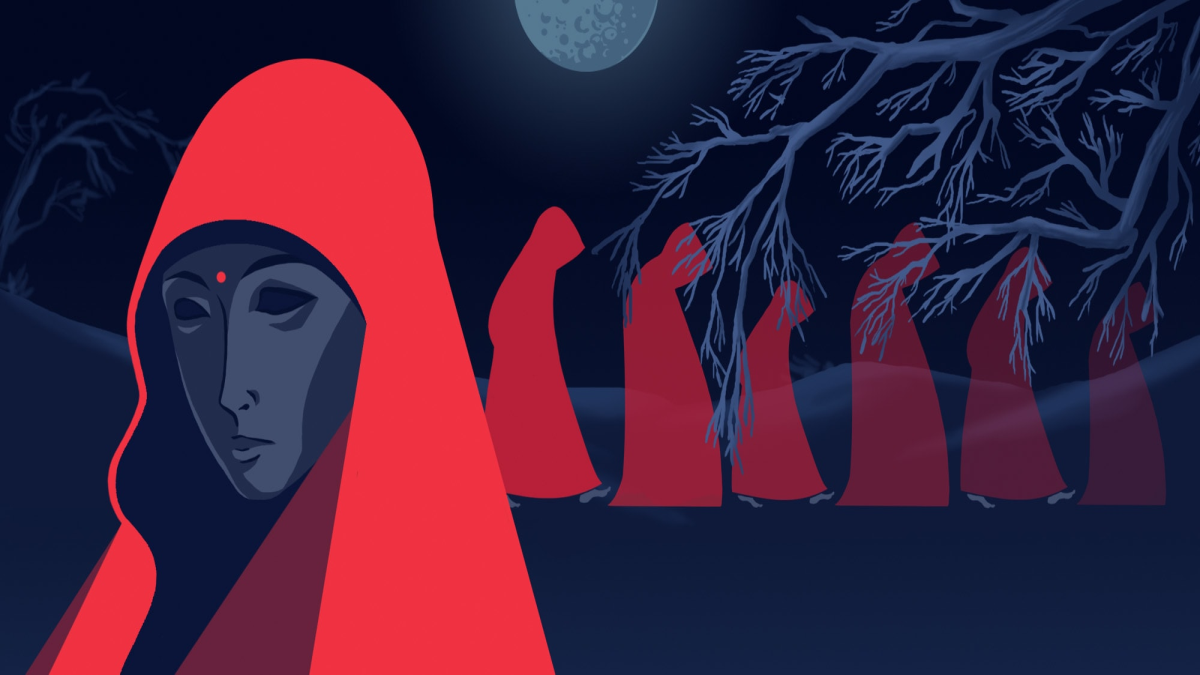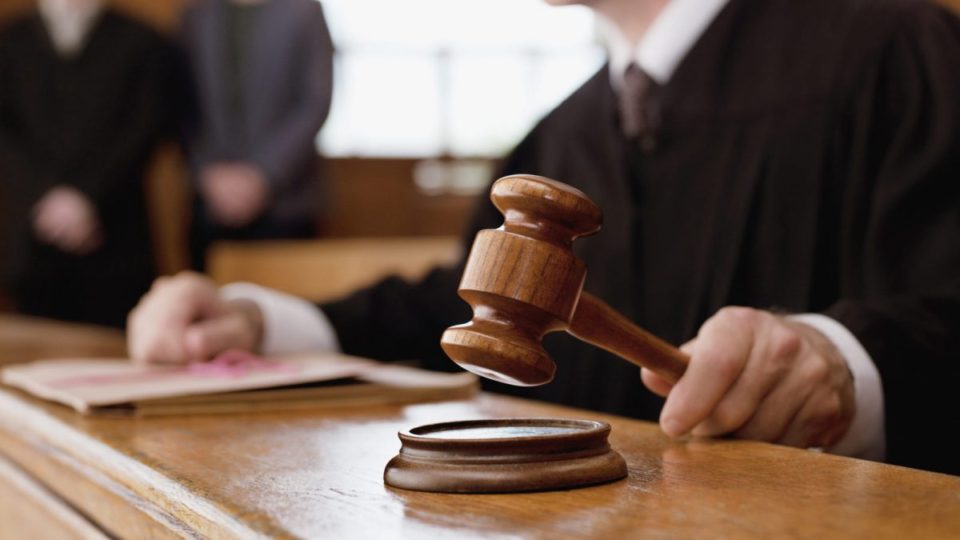- Legal Education and Access Portal
Case Analysis: Lahore High Court’s Ruling Against Forced Conversions
- INTRODUCTION
Recently, for the first time in judicial history, the Honourable Lahore High Court in Mst Nasira Bibi Judicial Magistrate issued a judgement on forced religious conversion in Pakistan.[1] Muskan, who is a 14 years old Christian girl, was employed as a domestic worker by a Muslim family based in the Sargodha District of Punjab, Pakistan. Muskan was also living with her employer family. The employer family claimed that Muskan has converted from Christianity to Islam and prevented her parents from meeting with her. Muskan’s mother Nasira filed a habeas corpus petition before the Lahore High Court for the recovery of her daughter.
In his detailed judgement, the Justice Tariq Salim Sheikh stated that a child below 15 years of age was not sui juris and could not change religion on his or her own volition because a child lacks intelligence to form an informed opinion on such a sensitive matter.[2] Secondly, Justice Sheikh stated that the child is presumed to have father’s religion until he or she becomes sui juris after the attainment of 15 years of age.[3] The judgement further stated,[4] that a child below 15 years cannot be employed as a domestic worker under the Punjab Domestic Workers Act 2019.[5]
- CONSTITUTIONAL PROTECTIONS TO MINORITIES
This is a landmark judgement that explained what amounts to religious conversion and what are its legal requirements. The judgement clarified that “religious conversion” is “the adoption of a set of beliefs identified with one particular religious denomination to the exclusion of others” and “the abandoning of adherence to one denomination and affiliating with another.”[6] The judgement further clarified that a change from one denomination to another within the same religion, for example, from Baptist to Catholic Christianity or from Shia to Sunni Islam, also amounts to religious conversion.[7] The judgement further stated that “forced conversion” is imposing one’s belief on another through coercion, undue influence or inducement.[8] Interestingly, to clarify these fundamental concepts, Justice Sheikh relied on an Indian Supreme Court’s judgement Rev Stainislaus.[9]
It is important to note that the freedom of religion lies at the heart of Pakistan’s democratic enterprise. The Objectives Resolution, which is not only the preamble to the Constitution of Pakistan 1973 but also forms a part of its substantive provisions by virtue of Article 2A,[10] grants every citizen – including minorities – the right to profess and practice their religion freely and independently without undue interference by any other person belonging to a different religious denomination. Furthermore, Article 20 of the Constitution of Pakistan 1973 sanctifies freedom of religion as a fundamental right. Article 20 of the Constitution reads:
“Freedom to profess religion and to manage religious institutions.
Subject to law, public order and morality,
- every citizen shall have the right to profess, practise and propagate his religion; and
- every religious denomination and every sect thereof shall have the right to establish, maintain and manage its religious institutions.”
- JUDICIAL INTERPRETATION OF ARTICLE 20
In order to interpret and apply Article 20 of the Constitution, Justice Sheikh relied on the Pakistani Supreme Court’s decision in a suo moto case regarding suicide bomb attack of 22 September 2013 on the Church in Peshawar and regarding threats given to Kalash tribe and Ismailis in Chitral.[11] In this case, the Supreme Court observed that “Of all the Articles relating to the minorities’ rights, Article 20 is of prime significance”[12] and affirmed the freedom of religion as a constitutional right. The Supreme Court observed that a close reading of Article 20 indicates that the freedom to practice religion and manage religious institutions is multifaceted, namely:
- The freedom of religion guaranteed in Article 20 must be construed liberally to include freedom of conscience, thought, expression, belief and faith.[13]
- The freedom, individual autonomy and rationality are essential characteristics of liberal democracies, and individual freedoms flowing from the freedom of religion must not be curtailed by attributing an interpretation of the right to religious belief and practice exclusively as a community-based freedom.[14] This illustration by the Supreme Court essentially clarifies the difference between the two types of rights protected by the clauses (a) and (b) of Article 20, namely, the rights individuals and the community rights.
- The freedom of religion is guaranteed to “every citizen” in the country irrespective of their age and whether they are a Muslim or non-Muslim.[15] The right to religious conscience does not make any distinction between majority and minority or Muslim and Non-Muslim. It is in the nature of an “equal religious protection clause” conferred on every citizen, every religious denomination and every sect thereof. This equal religious protection clause is in the same nature as the equal justice under the law and equal protection under the law clauses conferred under Articles 4 and 25. In other words, everyone enjoys absolute equality and there is no distinction among citizens, religious denominations and sects thereof, as far as the right to religious conscience, is concerned.[16]
- The right to profess and practice is conferred not only on religious communities but also on every citizen. What this means is that every citizen can exercise this right to profess, practice and propagate his religious views even against the prevailing or dominant views of its own religious denomination or sect. In other words, neither the majority religious denominations or sect nor the minority religious denomination or sect can impose its religious will on the citizen. Therefore, not only does it protect religious denominations and sects against each other but protects every citizen against the imposition of religious views by its own fellow co-believers.[17]
- The term “every citizen” necessarily includes both males and females (Article 263), which point needs emphasis considering the exclusion or subordination of women in relation to numerous forms of religious practices.
- Most importantly, the right to religious conscience is a fundamental right and has not been subjected or subordinated to any other provision of the Constitution because it is only subject to “law, public order and morality” as stated in Article 20 itself and not to any religious clauses of the Constitution. The Supreme Court observed:
“The very term law, public order and morality has been used in non-religious terms as the notion of law or public order or morality is not reducible to the Islamic meanings of these terms. Therefore, Article 20 has a certain pre-eminence in the Constitution being only subject to the general restrictions of law, public order and morality, which three terms cannot be interpreted or used in such a restrictive way as to curtail the basic essence and meaning of the pre-eminent right to religious conscience.”[18]
This is indeed a great explanation by the Supreme Court. Although the Constitution declares Islam as the state religion,[19] and requires all laws to be made and interpreted in accordance with the injunctions of Islam,[20] Article 20 is an exception and requires interpretation in accordance with the fundamental principles of law itself rather than being subject to any religion led conception of law.
It is clear from the above discussion that the Supreme Court indeed went to great details to explain that an individual has a right to practice his or her religious belief in accordance to his or her own conscience as he or she is by no means bound by the dominant view of his religious denomination or sect. Furthermore, every community, whatever religion it professes, has a right to practice and propagate its religious belief and also has a right to maintain its religious institutions.
In the light of the Pakistani courts decisions discussed above, it can be concluded that Pakistani Constitution provides a comprehensive framework for the protection of minorities, which precludes the need for any further legislation to protect against forced conversions. In this regard, Justice Sheikh observed that some countries, including India, Nepal, Myanmar and Bhutan, have enacted anti-conversion laws.[21] In the past, the governments of Pakistan also considered an anti-conversion legislation but did not pass it. In the case of Hindu Council,[22] the Supreme Court of Pakistan observed that such legislation is not required in Pakistan because Article 20 of the Constitution guarantees sufficient protection to the minorities against forced conversions.[23] It should be noted, however, that Pakistani Constitution or any other law in Pakistan does not prohibit wilful conversion of religion based on free consent. Only forced conversion through inducement or coercion is prohibited, which has been held as an infringement of fundamental rights.
- CAN A CHILD CONVERT ?
However, an important question before the Court is Mst Nasira Bibi was whether a person who has not attained the age of majority can wilfully convert their birth religion? In this regard, Justice Sheikh stated that children have the rights and liberties like adults, but they are sometimes restricted because of their vulnerability.[24] In respect of the religious freedom of a child, Justice Sheikh referred to international human rights law, particularly to the Declaration on the Elimination of All Forms of Intolerance and Discrimination Based on Religion or Belief (1981)[25] and the Convention on the Rights of the Child (1989).[26] So far as religious freedom is concerned, Justice Sheikh observed that the right of a child to convert is restricted by Article 5 of the Declaration of 1981, which recognises the right of the parents or legal guardians to bring up the child in their religion or belief, the right of the child to education in religion or belief in accordance with the wishes of the parents, and the right not to be compelled to receive education against their wishes.[27]
- CONCLUSION
This Mst Nasira Bibi judgement paves the way for further development of jurisprudence in Pakistan safeguarding the rights of minorities and particularly on forced conversion of children. However, keeping in view that the rights granted by Article 20 of the Constitution are very broad and general and do not specifically prohibit forced conversion, it would be more beneficial if the Federal Government introduces a specific law prohibiting forced conversion. Furthermore, although Pakistan government is bound by the declarations proclaimed by the United Nations, such declarations do not become automatically enforceable in Pakistan unless they are incorporated in the domestic law through legislation.
It should also be noted that the issue of forced
conversion is not restricted to children only and adults may equally become a
victim of forced conversion. A specific law extending prohibition of forced conversion
to both children and adults in accordance with the spirit of the constitutional
framework and the guidelines given by the Pakistani courts would bring clarity
and certainty in this important area of
public policy. If twinned with penal consequences, it will not only raise
public awareness on forced conversions but will also make forced conversion as
an offence actionable by public authorities instead of a wrong to be remedied
by higher courts under their constitutional mandate.
* The author is a human rights activist, lawyer and a law teacher. He appeared as amicus curiae before the Lahore High Court in the case of Mst Nasira bibi vs Judicial Magistrate etc. (Writ Petition 45156-19) dated 2 August-2019.
[1] Mst Nasira Bibi v Judicial Magistrate etc. (Writ Petition 45156-19) judgement dated 2 August 2019. Hereinafter referred to as “Mst Nasira Bibi”.
[2] ibid.,page 14 para 32 and 27 para 62.
[3] ibid., page 14 para32
[4] ibid., 26 para 61,
[5] The Punjab Domestic Workers Act (II of 2019).
[6] Mst Nasira Bibi Case (n 1) 4 para 10.
[7] ibid., 4 para11.
[8] ibid., page 9 para 23.
[9] Rev Stainislaus v State of Madhya Pradesh and others (AIR 1977 SC 908).
[10] Article 2A of the Constitution of Pakistan 1973 states that the Objectives Resolution to form part of substantive provisions of the Constitution. The Objectives Resolution states that “it is the will of the people of Pakistan to establish an order … Wherein adequate provision shall be made for the minorities to freely profess and practise their religion and develop their cultures … [and] to safeguard the legitimate interests of minorities and backward and depressed classes”.
[11] Suo Moto Case SMC No.1 of 2014 (PLD 2014 Supreme Court 699).
[12] Ibid., 720 para16.
[13] ibid., 716 para 14. See Mst Nasira bibi vs Judicial Magistrate etc. (n 1) 8 para 22.
[14] Suo Moto Case SMC No.1 of 2014 (n 11) 716 para [14] and Mst Nasira bibi vs Judicial Magistrate etc. (n 1) 8 paras 15 and 22.
[15] Suo Moto Case SMC No.1 of 2014 (n 11) 718 para 15.
[16] ibid., 720 para16.
[17] ibid., 718 para 15(e).
[18] ibid., 18 para 15(b).
[19] Constitution of Pakistan (1973) Article 2.
[20] ibid., Articles 203D (2) and 227.
[21] Mst Nasira Bibi Case (n 1) 11 para 25.
[22] Hindu Council v Pakistan through Ministry of Law (PLD 2012 Supreme Court 679).
[23] ibid., 680 para 2.
[24] Mst Nasira Bibi Case (n 1) 11 para 26.
[25] Declaration on the Elimination of All Forms of Intolerance and of Discrimination Based on Religion or Belief Proclaimed by General Assembly resolution 36/55 of 25 November 1981.
[26] The UN General Assembly adopted the Convention on the Rights of Child 1989, and opened it for signature on 20 November 1989 (the 30th anniversary of its Declaration of the Rights of the Child 1959). It came into force on 2 September 1990.
[27] Declaration on the Elimination of All Forms of Intolerance and of Discrimination Based on Religion or Belief (n 28) Article 5.




